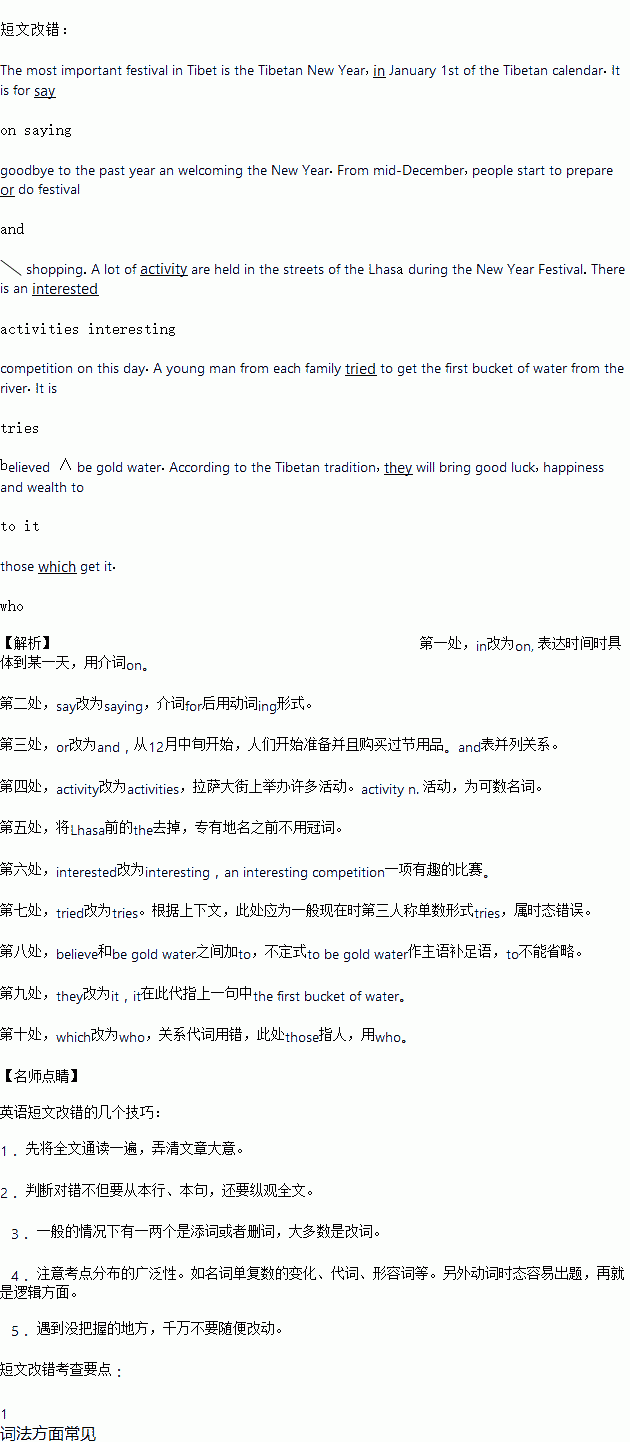题目内容
假定英语课上老师要求同桌之间交换修改作文,请你修改你同桌写的以下作文。文中共有10处错误,每句中最多有两处。错误涉及一个单词的增加、删除或修改。
增加:在缺词处加一个漏字符号(∧),并在此符号下面写出该加的词。
删除:把多余的词用斜线(\)划掉。
修改:在错的词下划一横线,并在该词下面写出修改后的词。
注意:1.每处错误及其修改均仅限一词;
2.只允许修改10处,多者(从第11处起)不计分。
The most important festival in Tibet is the Tibetan New Year,in January 1st of the Tibetan calendar.It is for say goodbye to the past year an welcoming the New Year.From mid-December,people start to prepare or do festival shopping.A lot of activity are held in the streets of the Lhasa during the New Year Festival.There is an interested competition on this day.A young man from each family tried to get the first bucket of water from the river.It is believed be gold water.According to the Tibetan tradition,they will bring good luck,happiness and wealth to those which get it.

